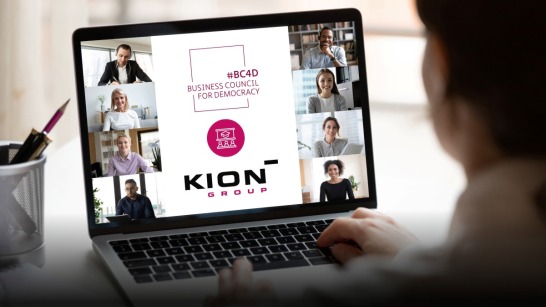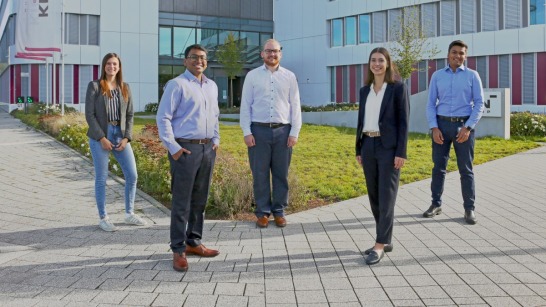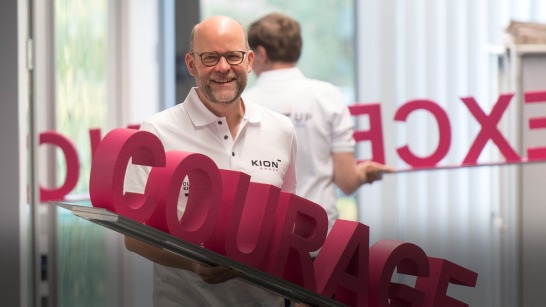Jasmin Elvers, work-study student with KION Group IT in Hamburg:
Why did you sign up for the workshop?
It was really the range of subjects that got me interested. It deals with current issues like disinformation and hate speech that are everywhere in the media at the moment. I find conspiracy theories particularly interesting. What are people thinking when they believe in conspiracy theories and what are their reasons for this? I've always found it hard to understand. That’s why I want to learn how to understand these people and how I can get on better with those around me. During the pandemic in particular, I kept on thinking about something my parents used to say to me all the time: Don't believe everything you read. We should question things more and read multiple sources when we're looking for information.
What have you learned so far?
At the start of the workshop sessions, there’s always a theoretical part where we start by discussing the definitions of the individual topics. This is really important, as it allows us to learn the differences between hate speech, disinformation, and false information. The workshop has also shown me new tools like reverse image search, which I can use to identify false information and explain this to other people. I've realized how easy it is to edit images, tweets, and other posts in order to spread fake news. It's particularly quick and easy on social media because of anonymity.
Have you already had your own experiences with hate speech, disinformation, or conspiracy theories?
I haven’t had any personal experience of them on the social networks. My Instagram account is private so I only have contact with my friends and acquaintances. But I did notice at the start of the pandemic that there were a lot of different opinions out there and that false information could spread fast. Arguing against it doesn't really do much. I had to learn that and BC4D has made that clearer too.
What do you think about KION offering this workshop to its trainees and work-study students?
I think it's fantastic that KION is giving us the chance to participate in BC4D workshops. It’s not only helping me on a personal level, but also professionally. We're learning how to handle colleagues within a company who are spreading disinformation and hate speech. Whether that's on the intranet or in person. I hope there will be more opportunities like this.





